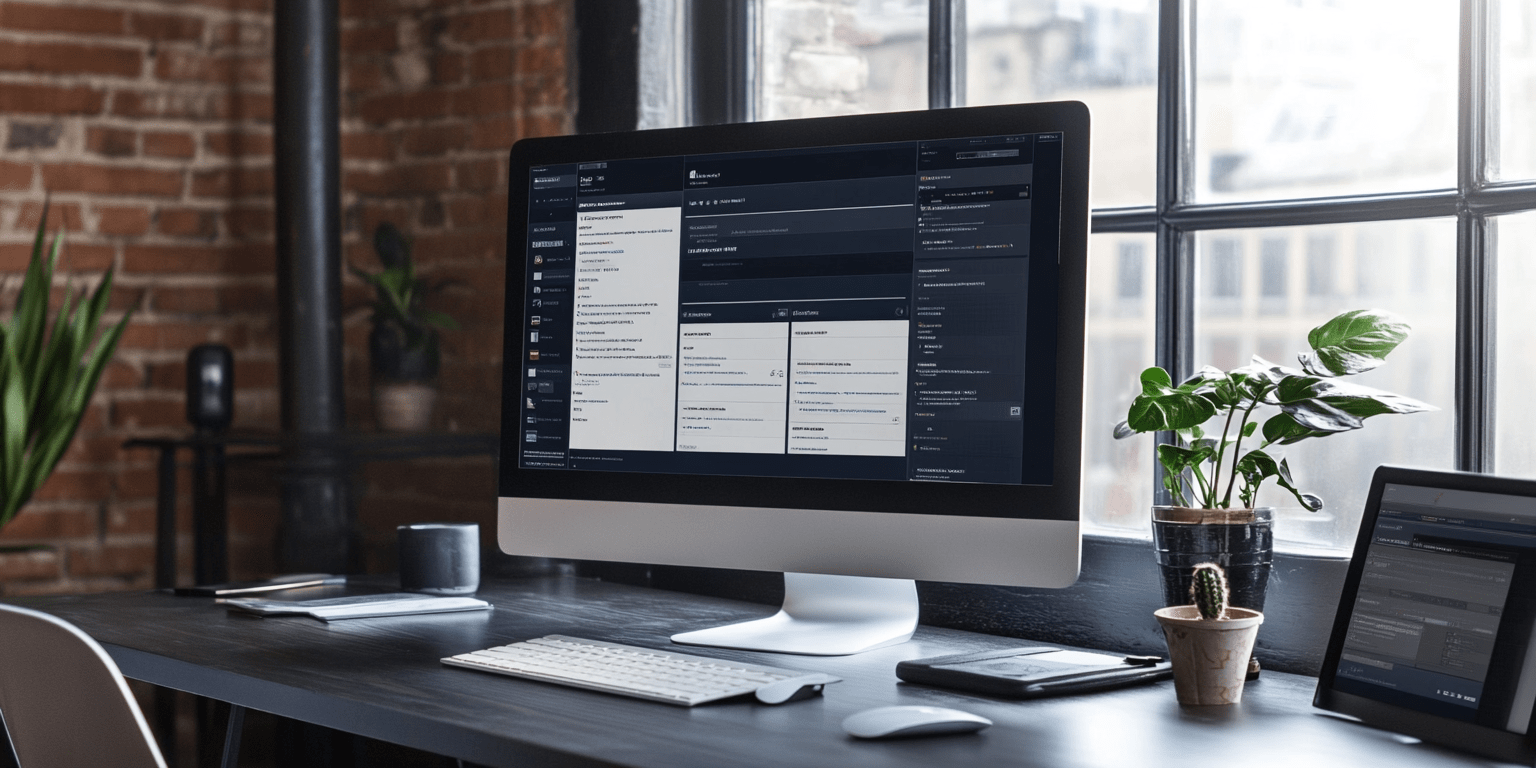A content management system serves as the foundation of a website, defining its structure, ease of administration, and adaptability to business needs. The choice of platform is often the point where many entrepreneurs face confusion: platforms that appear similar on the surface behave differently in use and require specific approaches. Overlooking key nuances at this stage often leads to limited functionality, difficulties with scaling, and unexpected expenses after launch. This is why assessing the site type, project goals, budget, and development potential should happen at the very beginning. But how exactly should you choose a CMS for your website, what should you keep in mind, and which mistakes should be avoided? Let’s explore all of this in detail.
The type of website as the basis for CMS selection
The type of website directly impacts the CMS choice, as the resource format determines the structure, functionality, and how content is managed. For an online store, the ability to manage products, payments, deliveries, and promotions becomes essential. In contrast, for a blog, publishing ease, convenient moderation, and basic SEO tools are more important than complex configurations.

Corporate websites usually require a clear structure with flexible section management, while landing pages prioritize fast deployment, minimal extra elements, and readiness for integration with marketing or analytics tools. In each of these scenarios, the CMS must address current tasks while also supporting future scaling without technical complications.
There is no universal solution that works equally well in every scenario. Even the most flexible platforms with extensive capabilities often require extensions or constant refinements if their use goes beyond the basic purpose. This increases maintenance complexity, raises costs, and creates technical dependency. Therefore, choosing a CMS should start with a clear understanding of the project and its actual requirements.
Functional features of a CMS platform – what to look for
When choosing a content management system, it’s important to focus on the following aspects:
- Functionality. The platform should handle key website tasks at a basic level without requiring complex configurations or third-party solutions immediately after launch.
- Interface. The admin panel must be logically structured and intuitive, even for users without technical experience, eliminating the need for constant developer support.
- Security. The system should offer regular updates and reliable protection mechanisms, allowing role-based access control.
- SEO. A CMS must allow flexible management of meta data, URL structures, and internal linking without additional plugins.
- Scalability. The platform should remain stable as functionality expands or traffic increases, avoiding roadblocks to growth.
- Integration. The CMS must easily connect with external services like CRM systems, analytics tools, or payment gateways without compromising performance.
- Updates. Consistent platform development helps avoid obsolescence by promptly addressing vulnerabilities and ensuring compatibility with modern technologies.
Popular platforms – strengths and features of each
Among the best-known CMS platforms, WordPress is considered the most versatile. It suits blogs, informational websites, and corporate portals where flexible content management, structural control, and quick edits without developer input are essential. The system also provides a vast selection of templates and plugins, allowing for tailored customization. However, for more complex projects, WordPress may require additional development and lead to increased reliance on third-party tools.
For e-commerce, OpenCart is a more appropriate option. Its architecture is designed specifically for managing product catalogs, orders, and payments. The base setup includes open-license tools that would otherwise require separate installation in other CMSs. This accelerates development of sites for online stores, but OpenCart is less optimal in terms of design flexibility and content management.

For more advanced projects, Joomla and Drupal are excellent options. Both support precise control over site architecture and can implement non-standard data workflows or internal service integrations, making them suitable for large organizations. However, they demand technical expertise and careful implementation, which makes these platforms relevant only when basic solutions fall short.
Tips for selecting the right CMS for your website
When helping clients choose a CMS, we recommend considering several key factors:
- Website type and format. The purpose of the site dictates its logic, content structure, toolset, and how users interact with it, so the CMS must align with this scenario.
- Content volume and dynamics. If the site involves frequent updates, news publications, articles, or product listings, the CMS must efficiently handle large data volumes without performance issues.
- Business process compatibility. The system must support technical functions and integrate smoothly into the company’s internal workflows, considering team structure, available tools, and operational processes.
- Availability of extensions. A robust ecosystem of plugins, modules, and templates significantly enhances CMS flexibility, allowing for new functionality without needing developers for every update.
- Security and updates. A website’s technical safety depends on how regularly the system is updated, how quickly vulnerabilities are patched, and whether the CMS meets current security standards.
- Team’s technical capacity. The CMS should match the skill level of those managing it daily. If the team lacks technical expertise, the system must not create usability barriers.
Common mistakes when choosing a CMS and how to avoid them
Frequent missteps include:
| Brand bias. | A familiar brand name might feel trustworthy, but it doesn’t guarantee the system fits your project. |
| Complex admin panel. | If the interface lacks clear logic, even basic tasks become effortful or require external help. |
| Scalability limits. | A CMS that performs well early on may fail to support structural or traffic growth later, stalling development at critical moments. |
| Design-focused decisions. | Choosing a CMS based solely on attractive templates distracts from more crucial technical aspects that affect website functionality. |
| Ignoring architecture. | A mismatch between system logic and site structure makes even simple tasks difficult, creating ongoing technical roadblocks. |
How CMS choice and development affect project costs
Our experience shows that choosing the right CMS has a direct impact on overall website development and maintenance costs. If the system requires major customizations or complex integrations with internal services, this increases workload and expenses. In contrast, selecting the right platform optimizes future processes and reduces the strain on your budget. That’s why we take an individual approach, considering the client’s goals and vision, along with the specific characteristics of their business.
Why choosing a CMS is best left to the experts at QuatroIT
When selecting a CMS and developing a website, we:
- Prioritize tasks over features. Instead of focusing on feature lists, we look at how the company operates and which processes the CMS needs to support daily.
- Align CMS with processes. We choose platforms that fit naturally into the organization’s internal structure, considering team roles, workflow sequences, and content management.
- Justify every choice. We clearly explain each decision, showing how the system solves specific challenges, what benefits it brings, and what limitations to expect.
- Keep it lean. We avoid unnecessary add-ons, creating an environment where every element serves a clear purpose and supports smooth daily operations.
- Provide post-launch support. We continue to assist after handover, adjusting the website as needed and ensuring stable performance long-term.
Need help selecting a CMS? Looking for a platform that can fully meet your business needs while supporting future growth? Then you can rely on QuatroIT. Our team knows the industry inside out and always listens to our clients, guaranteeing the outcomes they expect in every situation. Don’t wait – reach out today. Our experienced specialists are ready to help.











